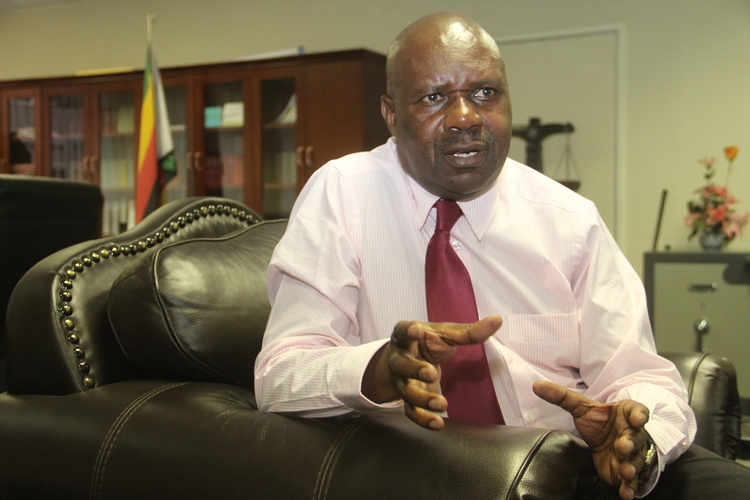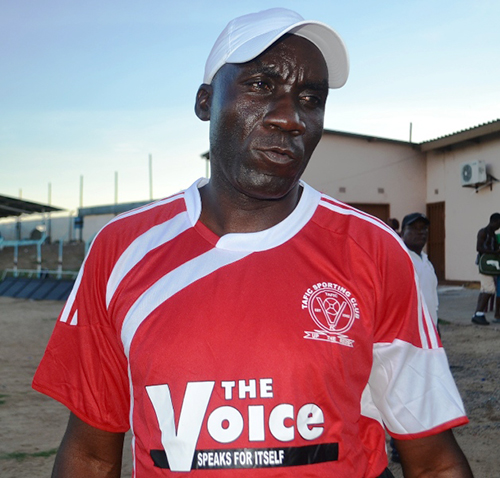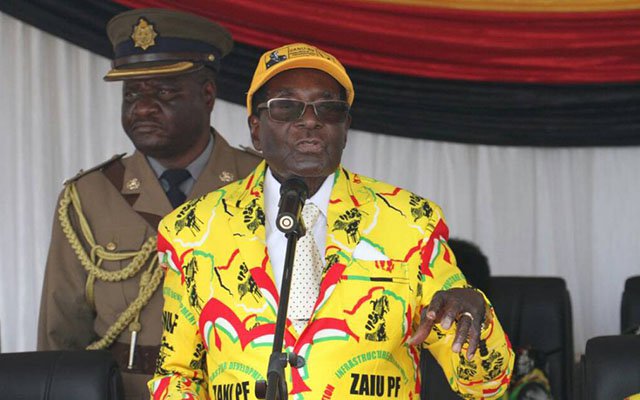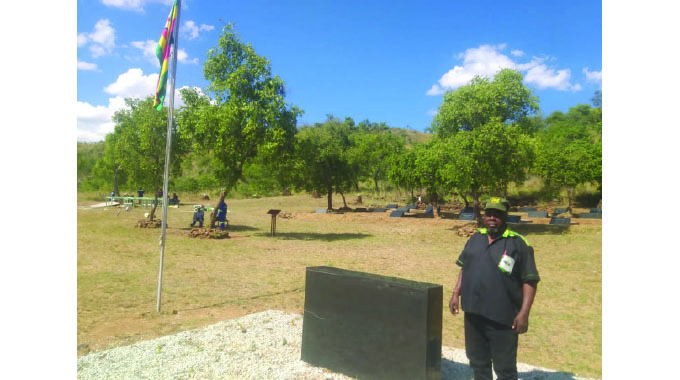Goba spells out NPA roadmap

President Mugabe this week appointed distinguished lawyer Advocate Ray Hamilton Goba as the country’s new Prosecutor-General. Adv Goba, who has vast experience in prosecution after serving as PG for Namibia, replaced Mr Johannes Tomana, who was recently fired for incompetence and misconduct. Our Senior Court Reporter Daniel Nemukuyu (DN) caught up with Adv Goba (RG), who shares his vision for the National Prosecuting Authority. He speaks on perceived divisions in the esteemed office and the secondment of military staff to his office, among other issues.
DN: There have been reports of disharmony and divisions within the NPA. How do you intend to unite the camps?
RG: Well, they are not divisions per se. I understand two people in the senior management here at head office, prior to my coming, disagreed on a certain matter. I realised that the dispute was of a personal nature and it was not a professional one. I have already acted on that problem. I, for my part, did take steps to mediate between the two in the interests of the integrity and reputation of the office.
After the meeting, I thought the problem was over, but unfortunately, it turned out that one of them still had issues. I later learnt that they had both engaged lawyers intending to take the matter to court.
Considering that they are adults, and I tried my best to mediate, I left the issue to the parties and their lawyers. However, professionally they are relating well. Some individuals, who had taken sides in the disputes, have since been transferred to other stations.
So there are no longer camps to talk about save for a personal dispute pitting two adults.
DN: The NPA secretariat comprises members of the uniformed agencies and there have been talks of the authority being militarised. How do you comment on the said militarisation?
RG: We never militarised the office as claimed. Yes, we have military professionals on secondment here at head office running the administration of the NPA. It was a stop-gap measure undertaken to assist the NPA during its transition from the Attorney-General’s Office to the NPA in terms of the Constitution.
Our office only had lawyers and it did not have professional administrators. Government had no funds to recruit a team of civilian administrators to do the work. The military offered us human resources personnel, accounts staff, and others, who were being paid from where they had come from.
DN: Prosecutors have been arrested and some tried over corruption. As new PG, how are you going to tackle graft?
RG: It is important to identify any gaps in the system that can be corruptly abused by prosecutors. For example, the power and discretion to prosecute can be abused, hence we may come up with measures to control such powers or to monitor our officers in that respect. We identify gaps, target them and then put measures in place to prevent abuse of discretion. We may ensure that any decisions made are counter-checked and signed by a different prosecutor.
If cases are concluded at court, dockets should not just be taken back to the police station there and then. The outcome must be reviewed by a supervisor and if need be, an appeal is filed. If an acquittal is found to be due to poor investigation or poor presentation of facts by the prosecutor, then disciplinary action may be taken.
Another way of fighting the temptation of corruption is to improve the conditions of service for the staff.
I also suggest the movement of prosecutors from the Harare Magistrates’ Court and Mbare to our own building where we can monitor and supervise them.
DN: Is the National Prosecuting Authority Act adequate to equip you to execute your functions?
RG: The Act gives us a framework to carry out our operations, but Section 4 of the Act provides for the positions of PG, Deputy PG (DPG) and National Director of Public Prosecutions (NDPP) and Director for Administration (DA). The PG is regarded as the director of prosecutions, hence there is duplication of duties in the Act. We have since made representation for the abolishment of the NDPP post and amend the law to provide for at least two Deputy Prosecutor-Generals.
The new Constitution only provided for PG and the NDPP, but during the transition, former Deputy Attorney-General (Criminal Division) moved with the PG and occupied the position of NDPP and the one who was Director of Prosecutions assumed the position of Deputy Director of Public Prosecutions.
When the Act came into effect, it provided for the position of DPG and NDPP. The NDPP becomes an irrelevant post, hence we are advocating its abolishment and appointment of a second DPG.
The Act also provides for the recruitment of strictly lawyers as prosecutors, hence it poses a challenge for diploma holders to upgrade themselves.
DN: Does the law allow you to work with development partners?
RG: Yes. Section 24 of the NPA Act provides for the authority funds to come from any donor provided they are approved by Government.
We already have partners like the International Criminal Justice. The European Union are providing us with technical expertise in crafting and implementing our strategic plan. Some are assisting us in setting up and stocking our library.
We have another technical expert from United Nations Office on Drugs and Crime to assist us in the area of assets forfeiture. He is based here. He is not only assisting us, but he also assists investigating arms like the Zimbabwe Anti-Corruption Commission, Parks and Wildlife Management Authority, Zimbabwe Revenue Authority and the police.
DN: NPA has been served with eviction notices from Corner House Building over rent arrears. What is the latest on that issue?
RG: We are still in arrears, but Treasury is making regular payments to the landlord. I propose the purchase of our own building as a long term solution to the problem. Being an independent office, we need to stand on our own feet.
DN: How do you foresee your working relations with your deputy, Mrs Florence Ziyambi, considering you were competing for the same post in the just-ended PG’s public interviews?
RG: She was the first person to call me the day my appointment was gazetted. She congratulated me and I took it as a gracious thing on her part. We have also worked together before I became her boss. In the 1990s when I was Acting Director of Public Prosecutions, she was a junior prosecutor working under me. Over the years, while I was away, she rose through the ranks to become Deputy PG.
I believe that she and I, being professionals, we will work together well.
DN: Can you share your vision for the NPA with the readers?
RG: I would want to see a situation where the NPA will be envied by many across the globe. With the right calibre of cadre in the NPA, the sky is the limit in terms of how we carry out our functions.
DN: Can you comment on your relationship with the police and the Zimbabwe Anti-Corruption Commission. Are there no encroachments in the way you carry out your respective functions?
RG: We have a cooperative relationship. The NPA has an exclusive jurisdiction to institute and undertake criminal prosecutions. We do not investigate. We simply receive investigation dockets and reports from the investigative arms. If we find that there is no sufficient evidence, we decline prosecution. If there is evidence, we prosecute the matters. The ZACC has the mandate to specifically investigate corruption, raise awareness campaigns on the harmful effects of corruption, while the police have a general mandate to investigate crime. The ZRP and ZACC complement each other in the area of combating corruption. Both of them must bring their cases to the NPA for decision on whether to prosecute or not.
When the ZACC brings cases to us, we have the power to refer the matter to the police for further investigations.
DN: Before we end the interview, there is a persistent issue being raised by those opposed to your appointment that you have a previous conviction. How do you respond to that?
RG: To me that sounds like a song being played on a wrong speed. It now sounds like a scratched seven-single playing on an old gramophone at the speed of 33 revs per minute. The matter was resolved in Namibia long back.








Comments